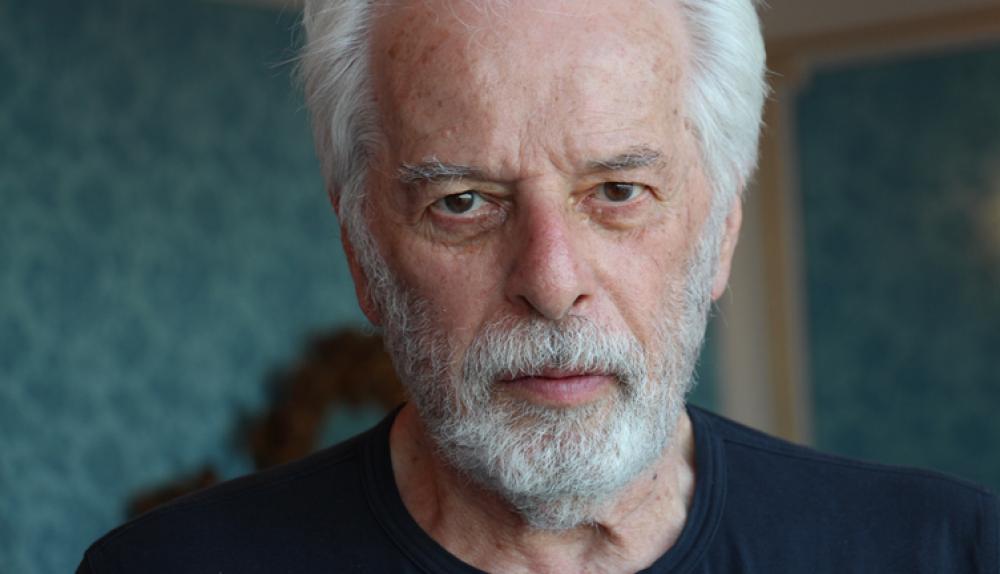Jodorowsky's "Dune" Gets Way More Credit Than It Deserves
Share with friends

Jodorowsky's raging, Kanye-West-like narcissism ruined the project and damaged people's lives...
The filmmaking documentary Jodorowsky’s Dune has became a hit amongst filmmakers, and its subject, Alejandro Jodorowsky, has been receiving credit for presaging the look of modern sci-fi films like Star Wars and Alien. But the adulation is misplaced. Not only does H.R. Giger deserve most of the credit for Alien, and 2001: A Space Odyssey for Star Wars, both of which came before Jodorowsky's bloated Dune project, but Jodorowsky himself is more of an excitable, unreasonable narcissist than a genius. Unfortunately, the two are frequently confused.
Jodorowsky’s Dune explores Jodorowsky’s failed attempt to film Frank Herbert’s novel, Dune, despite, as he admits in the documentary, never having read the book himself. Dune takes place on a planet named Arrakis, which becomes an intergalactic war zone where hostile factions battle over menage, a hallucinogenic spice that exists only there.
Jodorowsky believed his film would forever change people's perceptions by "recreating the hallucinations of LSD without actually needing the drug." He believed he could "open" his own ego and his intellect, along with everyone else’s. Ultimately, the only thing his ego did was to waste a lot of people's time. Despite having major Hollywood backing and a Warhol-like "factory" in Paris churning out Bible-length storyboards, the project was ultimately taken from Jodorowsky and given to David Lynch.
Since beginning as a cult film director, Jodorowsky has spoken narcissistically to the press about his bizarre films. When his first big film, the extremely strange El Topo, came out, he responded to critics by saying, “If you are great, El Topo is a great picture. If you are limited, El Topo is limited.” Sounds eerily familiar to Kanye West's Twitter feed.
When it came to Dune, Jodorowsky refused to face the reality that experimental films often fail in the box office, and refused to compromise or cooperate because he was so wrapped up in the idea that Dune would change humanity. He wanted studio money with no questions asked. And when he was turned down, he was angered and confused as to why people would not “respect a work of such an importance for the human conscience.”
In the documentary, Jodorowsky is described as a cult leader who knew how to pick his army well. It is true that he recruited only the best for his music, cast, and pre-production crew, but he did so in mischievous ways. By “seducing” them with his charisma and grand promises of changing the human consciousness, Jodorowsky convinced his ideal Dune crew to sell all their belongings and move to Paris for production.
As a director, Jodorowsky was also stubborn. His unwillingness to cut the script down from 10+ hours and eliminate other extravagant choices caused the collapse of the movie. He did manage to line up an all-star cast featuring Salvador Dali, Orson Welles, and Mick Jagger, as well as music from Pink Floyd. However, not knowing where to draw the line (e.g. paying Dali $100,000 an hour) left almost a fourth of Jodorowsky’s budget spent only on pre-production.
When the project failed, special effects supervisor Dan O’Bannon was left temporarily broke and homeless. In an interview years later, O’Bannon says, “Jodorowsky is the only person I’ve told in my life that I would do anything he said.” Jodorowsky’s persuasiveness combined with his large dreams convinced men like O’Bannon to drop everything for the project, but his stubbornness ended it and damaged his crew's lives.
Jodorowsky’s vision of Dune was certainly unique, but a far cry from the “most important picture in the history of humanity,” as he claimed it would be. He clearly believed he was some sort of divine prophet, and he even cast his own young son in the role of a Jesus-like character born of a Virgin mother.
Nonetheless, as "the greatest movie never made," Jodorowsky's Dune is most often lauded for establishing designs that would later be used in the Alien and Star Wars trilogies. The original storyboards are heralded as a glimpse into sci-fi future, and the costume and set design do seem to presage Star Wars and other more contemporary Sci Fi films:


But this credit is undeserved.
Alien was the brainchild of Swiss surrealist painter, H.R. Giger, who appears in the documentary. Jodorowsky recruited Giger as part of his team, and Giger delivered the drawings based on his pre-existing alien figures. Those alien figures were what inspired Dan O’Bannon to later write the Alien script “about a Giger monster.” O’Bannon said he had never seen anything quite as “horrible and at the same time as beautiful as [Giger’s] work.” While Jodorowsky deserves credit for recognizing how Giger's genius could apply to film, he hardly created the Alien monster.
2001: A Space Odyssey premiered seven years before Jodorowsky started on Dune, already establishing sci-fi movies as possible blockbusters. Ridley Scott, director of Alien, said that 2001 was "undebatably" the film that created the science fiction genre we know today. Released during the peak of the Space Race between the United States and the Soviet Union, 2001 imagined a world of routine space travel and artificial intelligence. Although the plot is quite different from that of Star Wars, both of these films explore the evolution of man into the future of really advanced technology. 2001 paved the way in special effects; particularly, the beginning of the Star Gate sequence resembles the Millennium Falcon jumping to light speed… just with a little more color. George Lucas, director of Star Wars, even referenced 2001 in very subtle ways. Screenshots of some sets could be confused between the two movies. In fact, according to DVD commentary, there is a shot overlooking the space station where Luke Skywalker and Leia Organa are born that is virtually identical to a shot of Moonbase Alpha from 2001. It is much more likely that 2001 separately influenced the visuals of Star Wars and Dune far more than the unproduced Dune bible influenced Star Wars.
Which begs the question, why is Jodorowsky's Dune project so significant to require its own documentary? The only answer is it's entertainingly-ridiculous emperor and his new clothes. While Dune’s psychedelic vision was unique in the science fiction genre, it did not revolutionize it.




